-
 Bitcoin
Bitcoin $118300
1.01% -
 Ethereum
Ethereum $4215
0.69% -
 XRP
XRP $3.198
-3.83% -
 Tether USDt
Tether USDt $1.000
-0.01% -
 BNB
BNB $803.4
-0.53% -
 Solana
Solana $180.3
-0.67% -
 USDC
USDC $0.9998
-0.01% -
 Dogecoin
Dogecoin $0.2334
-1.49% -
 TRON
TRON $0.3394
0.86% -
 Cardano
Cardano $0.7980
-1.45% -
 Chainlink
Chainlink $22.19
6.65% -
 Hyperliquid
Hyperliquid $43.41
0.13% -
 Stellar
Stellar $0.4407
-3.13% -
 Sui
Sui $3.843
-2.24% -
 Bitcoin Cash
Bitcoin Cash $564.7
-3.74% -
 Hedera
Hedera $0.2588
-3.41% -
 Ethena USDe
Ethena USDe $1.001
0.00% -
 Avalanche
Avalanche $23.64
-3.37% -
 Litecoin
Litecoin $120.0
-4.01% -
 Toncoin
Toncoin $3.342
-1.11% -
 UNUS SED LEO
UNUS SED LEO $9.038
0.60% -
 Shiba Inu
Shiba Inu $0.00001347
-0.81% -
 Uniswap
Uniswap $10.69
-4.58% -
 Polkadot
Polkadot $4.034
-1.30% -
 Dai
Dai $1.000
0.01% -
 Bitget Token
Bitget Token $4.472
-1.52% -
 Cronos
Cronos $0.1571
-3.04% -
 Pepe
Pepe $0.00001207
-2.21% -
 Monero
Monero $273.8
-3.19% -
 Ethena
Ethena $0.7520
2.75%
How to trade options on cryptocurrencies on Binance
Binance offers European-style crypto options on assets like BTC and ETH, allowing traders to hedge or speculate with flexibility, but beware of risks like theta decay and margin requirements.
Aug 10, 2025 at 09:49 am
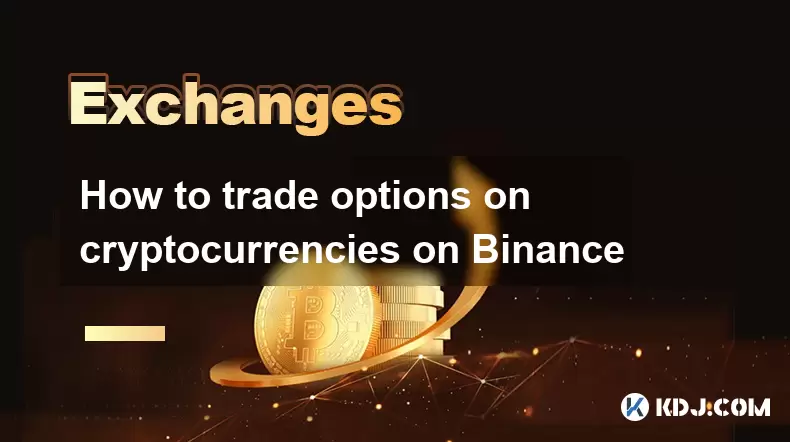
Understanding Cryptocurrency Options on Binance
Trading options on cryptocurrencies allows investors to speculate on price movements without owning the underlying asset. On Binance, one of the world's largest cryptocurrency exchanges, users can access a dedicated options trading platform that supports various digital assets such as BTC, ETH, and BNB. Unlike spot trading, options give traders the right—but not the obligation—to buy or sell an asset at a predetermined price (the strike price) before a specific expiration date. This flexibility makes options a powerful tool for hedging, leveraging, or generating income through premium collection. The options available on Binance are European-style, meaning they can only be exercised at expiration, not before.
Setting Up Your Binance Account for Options Trading
Before engaging in options trading, ensure your Binance account is fully verified and secured. Navigate to the Binance homepage and log in. If you don’t have an account, complete the registration process and undergo KYC (Know Your Customer) verification. Once verified, go to the Derivatives section from the top menu. Here, locate and click on Options. You may be prompted to enable two-factor authentication (2FA) if not already active—this is a mandatory security measure. After accessing the options interface, you’ll see available trading pairs, current premiums, strike prices, and expiration dates. Make sure your account has sufficient funds in the required asset, such as USDT or the underlying cryptocurrency, to cover potential margin or premium costs.
Navigating the Binance Options Interface
The Binance options trading interface is designed for both beginners and advanced users. Upon entering the options section, you will see a grid or list of available contracts. Key columns include:
- Underlying Asset: The cryptocurrency the option is based on.
- Expiration Date: The date the option expires.
- Strike Price: The price at which the asset can be bought (call) or sold (put).
- Type: Indicates whether it’s a call option (betting on price increase) or put option (betting on price decrease).
- Last Price: The most recent trading price of the option.
- Bid/Ask: The current buy and sell prices.
- Open Interest: The total number of outstanding contracts.
Use the search or filter tools to find contracts by expiration date or strike price. Hovering over or clicking a contract opens a detailed view showing Greeks (like delta and theta), implied volatility, and historical data. These metrics help assess risk and potential return. The charting tools integrated into the interface allow technical analysis directly on the options screen.
Executing a Cryptocurrency Option Trade
To place an options trade on Binance, follow these steps: - Select the desired option contract from the list.
- Click on the Buy or Sell button depending on your strategy.
- Choose your order type: Limit Order (set your price) or Market Order (execute immediately at current price).
- Enter the quantity of contracts you wish to trade.
- Review the estimated cost, including fees and required margin if applicable.
- Confirm the transaction using your 2FA method.
For example, if you believe Bitcoin will rise above $70,000 in the next 24 hours, you might purchase a call option with a strike price of $68,000 expiring tomorrow. If BTC surpasses $68,000 at expiration, the option becomes in-the-money, and you receive a payout based on the difference. Conversely, if you expect a drop, you would buy a put option. Selling options (writing) is also possible and generates premium income, but carries higher risk if the market moves against your position.
Managing Risk and Position in Options Trading
Options trading involves significant risk due to leverage and time decay. The value of an option erodes as it approaches expiration, a phenomenon known as theta decay. To manage risk: - Avoid holding options close to expiration unless you have a strong directional view.
- Use stop-loss strategies by setting alerts or manually closing positions.
- Diversify across different strike prices and expiration dates.
- Monitor implied volatility (IV); high IV increases option premiums, making them expensive to buy but lucrative to sell.
- Keep track of your portfolio’s Greeks to understand sensitivity to price, time, and volatility changes.
Binance provides a risk management dashboard where you can view your open positions, unrealized P&L, and margin requirements. Never invest more than you can afford to lose, especially when selling options, as losses can exceed initial premiums received.
Settlement and Expiration Mechanics
When an option reaches its expiration time, Binance automatically settles in-the-money contracts. Settlement is typically in cash, meaning you receive the profit in USDT or the quoted currency without exchanging the underlying asset. For example, if you hold a BTC call option with a $65,000 strike and BTC closes at $67,000, you receive $2,000 per BTC contract in USDT. Out-of-the-money options expire worthless, and no action is required. Settlement occurs instantly at expiration, and funds are credited to your options wallet. You can transfer these funds to your spot or futures wallet for further use.Frequently Asked Questions
Q: Can I trade cryptocurrency options on Binance without prior experience in derivatives?
Yes, Binance offers educational resources and a user-friendly interface. However, it’s crucial to understand the mechanics of options, including premiums, strike prices, and expiration, before trading. Consider starting with small positions to gain experience.Q: Are there fees for trading options on Binance?
Yes, Binance charges a trading fee based on your 30-day volume and BNB holdings. Fees are applied when you open and close positions. The exact rate can be found in the Fee Schedule under the Options section. There are no separate settlement fees.Q: What happens if I sell an option and it expires in-the-money?
If you sold a call option and the price exceeds the strike, you must pay the difference. For a put option, if the price falls below the strike, you owe the difference. Binance automatically deducts the amount from your options wallet. Ensure sufficient balance to cover potential obligations.Q: Can I close my options position before expiration?
Yes, you can exit your position at any time before expiration by placing an opposite trade. For example, if you bought a call option, you can sell the same contract to close the position. The profit or loss depends on the current market price of the option.
Disclaimer:info@kdj.com
The information provided is not trading advice. kdj.com does not assume any responsibility for any investments made based on the information provided in this article. Cryptocurrencies are highly volatile and it is highly recommended that you invest with caution after thorough research!
If you believe that the content used on this website infringes your copyright, please contact us immediately (info@kdj.com) and we will delete it promptly.
- Altcoin Dominance, Bull Run, and Blockchain Forecasts: Is AVAX the Sleeper?
- 2025-08-10 22:30:14
- Pi Coin: Crypto Disappointment or Opportunity to Recoup Losses?
- 2025-08-10 22:30:14
- Crypto Presales: Unlocking Generational Wealth with the Best Coins in 2025
- 2025-08-10 22:50:14
- PEPE, Unilabs, and Fundraising: Crypto's Dynamic Duo?
- 2025-08-10 22:55:21
- Bitcoin, ETF Inflows, and Institutional Interest: A Bullish Trio?
- 2025-08-10 22:35:14
- Cold Wallet's Hot Streak: Acquisition, User Growth, and How it Stacks Up Against Ethereum & XRP
- 2025-08-10 20:30:16
Related knowledge
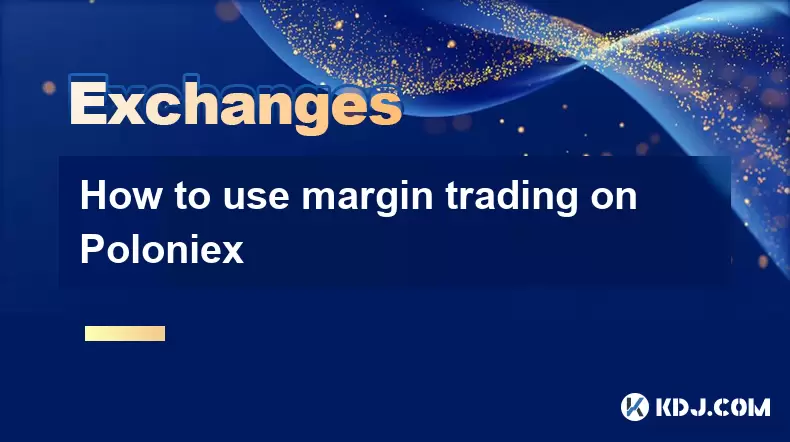
How to use margin trading on Poloniex
Aug 08,2025 at 09:50am
Understanding Margin Trading on Poloniex
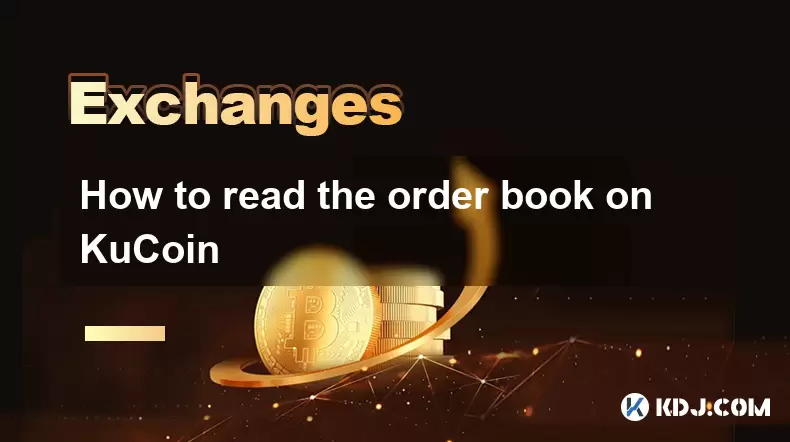
How to read the order book on KuCoin
Aug 10,2025 at 03:21pm
Understanding the Order Book Interface on KuCoinWhen accessing the order book on KuCoin, users are presented with a real-time display of buy and sell ...
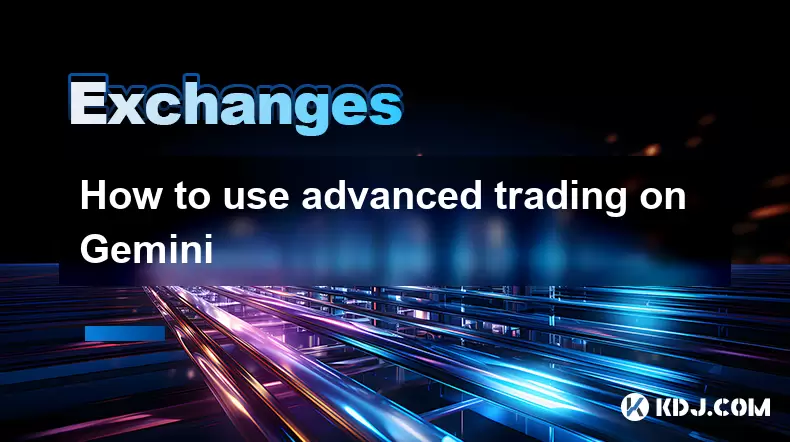
How to use advanced trading on Gemini
Aug 08,2025 at 04:07am
Understanding Advanced Trading on GeminiAdvanced trading on Gemini refers to a suite of tools and order types designed for experienced traders who wan...
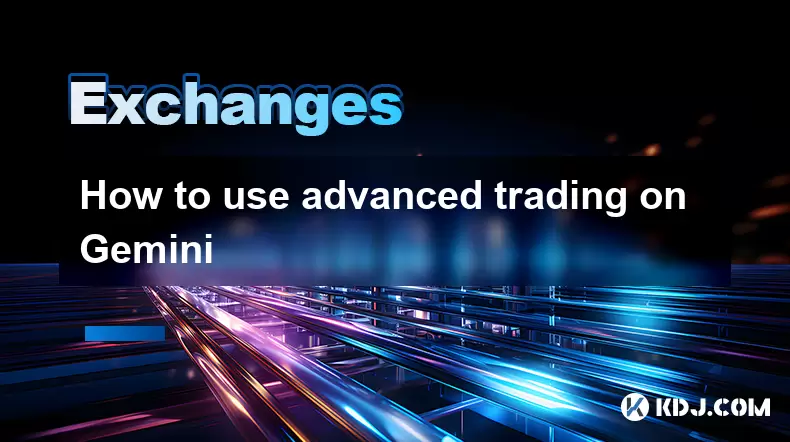
How to use advanced trading on Gemini
Aug 08,2025 at 10:56pm
Understanding Advanced Trading on GeminiAdvanced trading on Gemini refers to the suite of tools and order types available on the Gemini ActiveTrader p...
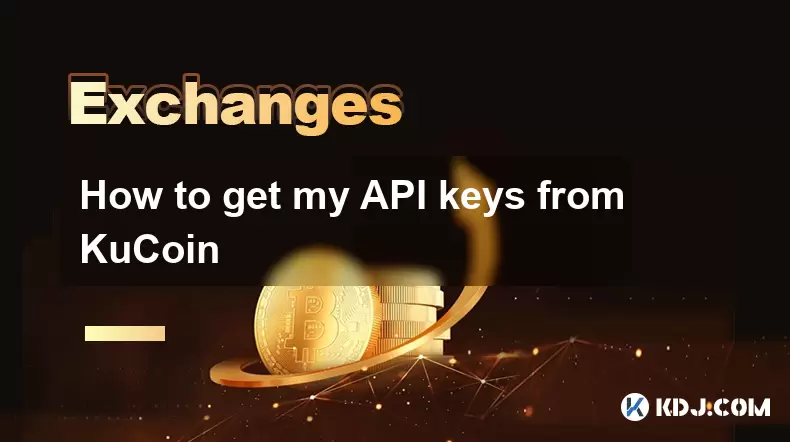
How to get my API keys from KuCoin
Aug 08,2025 at 06:50pm
Understanding API Keys on KuCoinAPI keys are essential tools for users who want to interact with KuCoin's trading platform programmatically. These key...
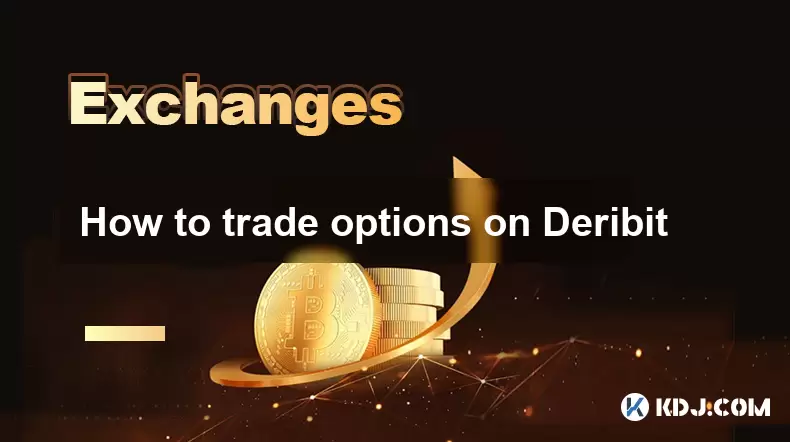
How to trade options on Deribit
Aug 09,2025 at 01:42am
Understanding Deribit and Its Options MarketDeribit is a leading cryptocurrency derivatives exchange that specializes in Bitcoin (BTC) and Ethereum (E...

How to use margin trading on Poloniex
Aug 08,2025 at 09:50am
Understanding Margin Trading on Poloniex

How to read the order book on KuCoin
Aug 10,2025 at 03:21pm
Understanding the Order Book Interface on KuCoinWhen accessing the order book on KuCoin, users are presented with a real-time display of buy and sell ...

How to use advanced trading on Gemini
Aug 08,2025 at 04:07am
Understanding Advanced Trading on GeminiAdvanced trading on Gemini refers to a suite of tools and order types designed for experienced traders who wan...

How to use advanced trading on Gemini
Aug 08,2025 at 10:56pm
Understanding Advanced Trading on GeminiAdvanced trading on Gemini refers to the suite of tools and order types available on the Gemini ActiveTrader p...

How to get my API keys from KuCoin
Aug 08,2025 at 06:50pm
Understanding API Keys on KuCoinAPI keys are essential tools for users who want to interact with KuCoin's trading platform programmatically. These key...

How to trade options on Deribit
Aug 09,2025 at 01:42am
Understanding Deribit and Its Options MarketDeribit is a leading cryptocurrency derivatives exchange that specializes in Bitcoin (BTC) and Ethereum (E...
See all articles

























































































